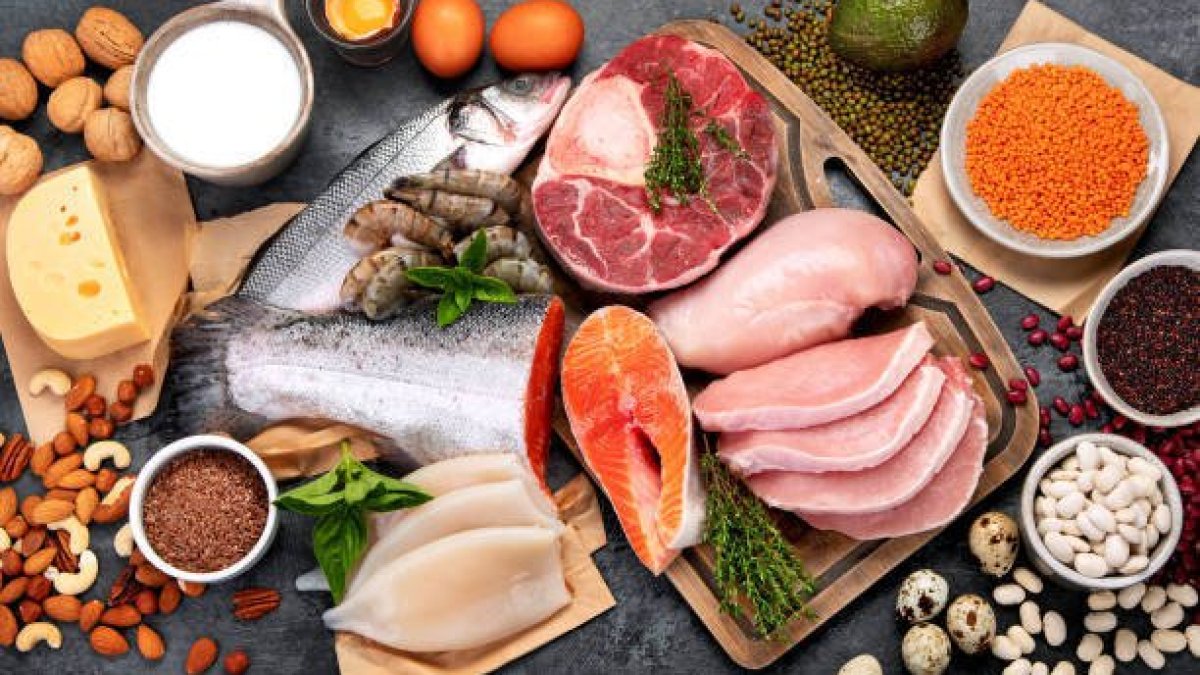Many people may be aware they are lacking vitamin D or calcium but some other vitamins and minerals may be flying under the radar
Many people in the UK are failing to get enough of three vitamins and minerals, which may not be on their radar.
Selenium, iodine and riboflavin, also known as vitamin B2, are among the nutrients found to be lacking in UK diets.
Other deficiencies of concern, which may be more well known, are vitamin D, folate (vitamin B9), iron, calcium, and potassium, according to a new analysis of the Government’s National Diet and Nutrition Survey, published this year.
New FeatureIn ShortQuick Stories. Same trusted journalism.
“The outcomes are probably indicating that as a nation, we’re not eating a balanced diet,” said Bridget Benelam of the British Nutrition Foundation.
The number of deficiencies has risen since the last time the survey was published, in 2016.
Then, problems were found for vitamin D, folate, iron, calcium and iodine, said Dr Emma Derbyshire, a public health nutritionist at the Health & Food Supplements Information Service.
Nutrient deficiencies may be growing because of the increasing trend to cut meat and dairy out of diets, said Dr Derbyshire.
Selenium important for immune system
Selenium is a key mineral that may be overlooked, said Dr Derbyshire. “We often concentrate on things like vitamin D and folate. Selenium is also important to consider.”
The mineral helps to maintain immune system functioning and deficiency can lead to infections, as well as tiredness and muscle weakness, and poor sperm quality in men. Nearly half of adults in the latest survey were not meeting recommended levels in their diet.
Food sources of selenium include meat, fish, eggs, Brazil nuts, lentils and grains.
Concerns have been raised in Parliament that selenium levels in some areas of British farmland are too low, which could contribute to low levels in crops.
 Selenium levels in British soils are variable (Photo: Richard P Long/Getty)
Selenium levels in British soils are variable (Photo: Richard P Long/Getty)
Iodine for tiredness and brain development
Iodine was also highlighted as a concern, with around 13 per cent of adults not getting enough iodine in their diet. Iodine levels have been measured in urine as part of the survey since 2013. This showed that levels had fallen by a quarter over the last 10 years.
The mineral is mainly found in seafood and dairy products. “If we’re moving towards plant-based milks, many of them are fortified with iodine, but quite often it’s enough to get a health claim, but it’s not the amount that we need for our health,” said Dr Derbyshire.
Iodine is essential for the body to make a hormone called thyroxine. In adults, a lack of iodine can lead to tiredness, but it is disastrous if it is lacking in pregnant women, as the mineral is needed for the baby’s brain development.
“A shortfall could have implications for the next generation,” said Dr Derbyshire.
Riboflavin needed for energy
A further nutrient of concern is riboflavin or vitamin B2. This is important for energy metabolism, and a deficiency can lead to fatigue. Dietary sources include meat, eggs, dairy products and some green vegetables like spinach.
In the survey, 15 per cent of adults were not getting enough riboflavin in their diet, with the figure rising to a third of teenage girls.
Benelam said that people who are avoiding meat and animal products need to use supplements to avoid malnutrition.
“If you don’t consume animal products, there are a few vitamins and minerals that will be harder to get,” she said.
“If you’re following healthy eating advice where you’re having a balance across all of the main food groups, then with the exception of vitamin D, you should be able to get everything you need.”
The analysis is published in the medical journal, Food and Nutrition Sciences.

